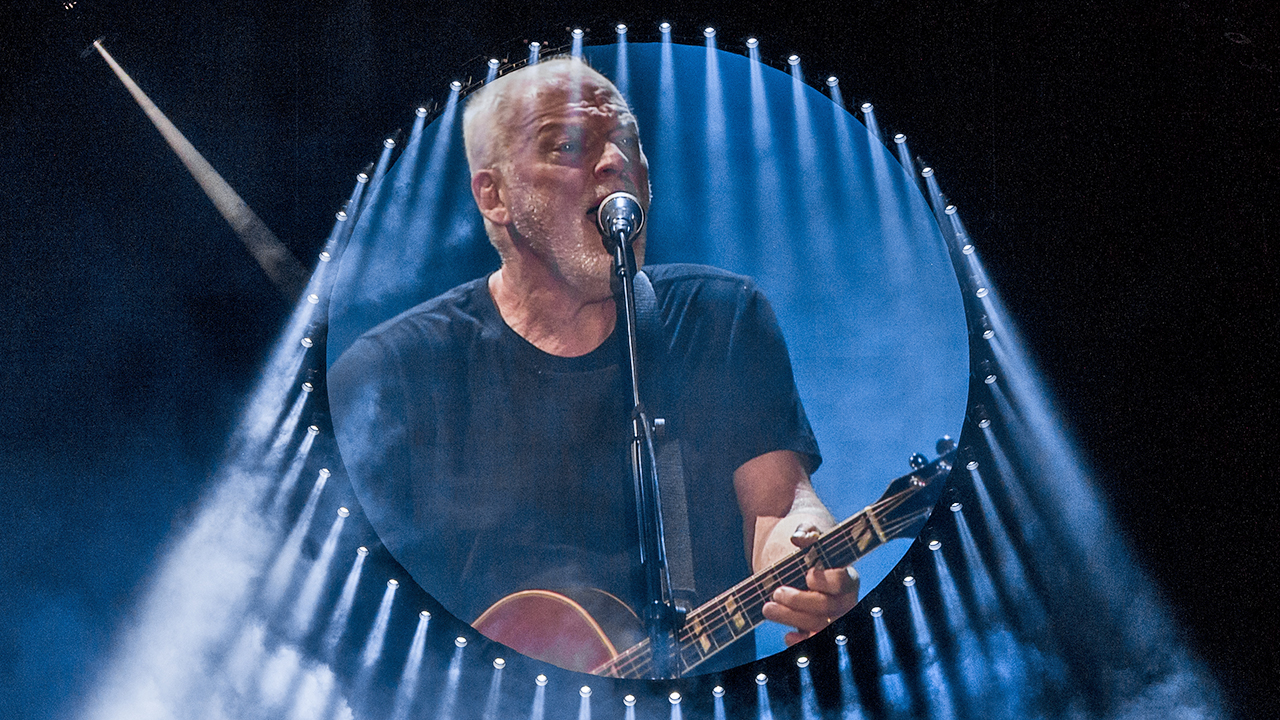Just let it happen: Nearly three years in the making, Jadis' ninth album is here
Almost three years in the making, Jadis’ ninth album is finally upon us, with a little help from former member and ex-IQ man Martin Orford. Frontman Gary Chandler charts its journey
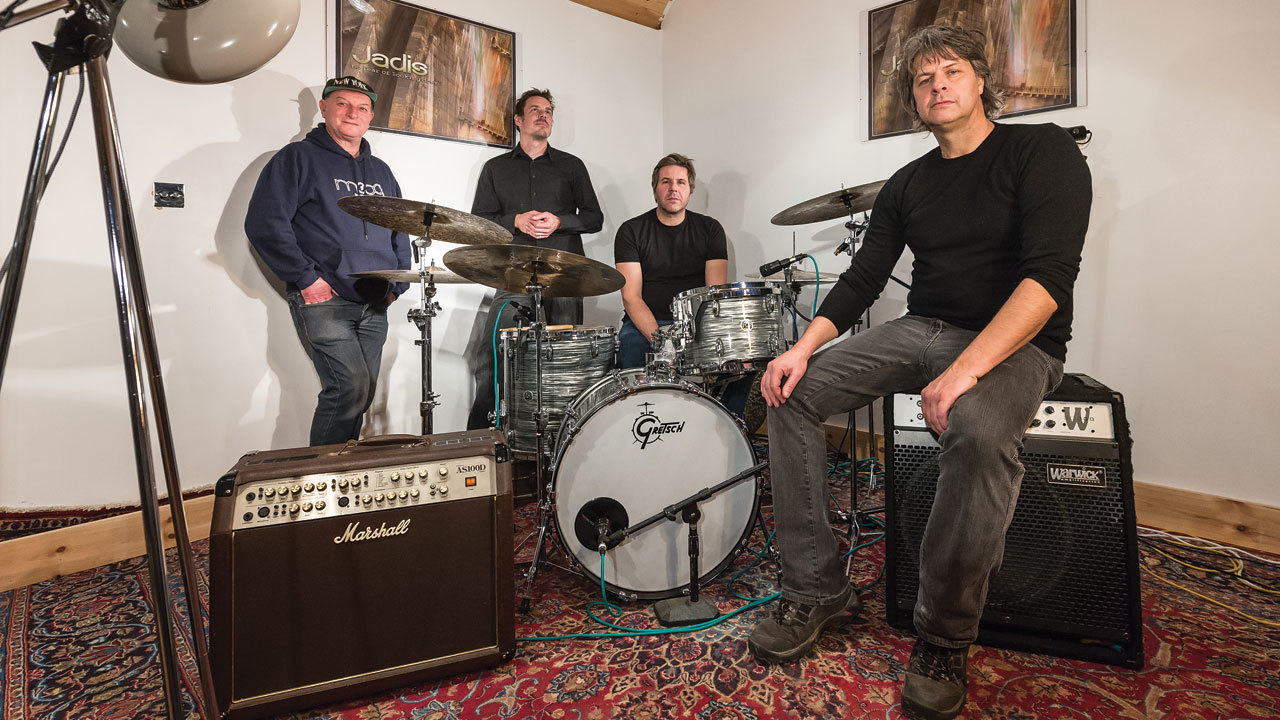
Select the newsletters you’d like to receive. Then, add your email to sign up.
You are now subscribed
Your newsletter sign-up was successful
Want to add more newsletters?

Every Friday
Louder
Louder’s weekly newsletter is jam-packed with the team’s personal highlights from the last seven days, including features, breaking news, reviews and tons of juicy exclusives from the world of alternative music.

Every Friday
Classic Rock
The Classic Rock newsletter is an essential read for the discerning rock fan. Every week we bring you the news, reviews and the very best features and interviews from our extensive archive. Written by rock fans for rock fans.

Every Friday
Metal Hammer
For the last four decades Metal Hammer has been the world’s greatest metal magazine. Created by metalheads for metalheads, ‘Hammer takes you behind the scenes, closer to the action, and nearer to the bands that you love the most.

Every Friday
Prog
The Prog newsletter brings you the very best of Prog Magazine and our website, every Friday. We'll deliver you the very latest news from the Prog universe, informative features and archive material from Prog’s impressive vault.
There’s something about prog and its place in the world that fosters a healthy siege mentality. Many a band from other genres, faced with such fearsome adversity as being dropped from a label, getting a lukewarm review online or losing the use of their dad’s private underground gymnasium as a rehearsal space, would quickly split up, jack it in or develop a radical new identity as a grime-influenced synth duo. But proggers seem able to persevere regardless, and Southampton trio Jadis are a perfect example of that characteristic.
Your mum won’t have heard of Jadis. If you’re not a regular reader of this publication, you may not have either. In a career spanning well over 30 years, the closest they’ve come to the charts is the ‘bassist wanted’ ad pages that used to be overleaf from the top 20 rundown in the old music papers. But since their original emergence in a 1980s neo-prog scene that, even then, was fading in potency, they’ve managed to slowly, surely, bloody mindedly survive, quietly thrive, and regularly thrill a small but loyal audience that has always known it has to look further than the end of its radio dial to find the really cool stuff.
Now, as Jadis release their eighth studio album, guitarist, singer and songwriter Gary Chandler doesn’t have to regard this as a labour of love – it pays, modestly, for itself, with no label, management or agent taking an undeserved cut.
More importantly, fans that have invested will be rewarded by one of their strongest albums to date. No Fear Of Looking Down blends punchy, melodic rock songs with dynamic, atmospheric soundscapes and captivating staccato prog.
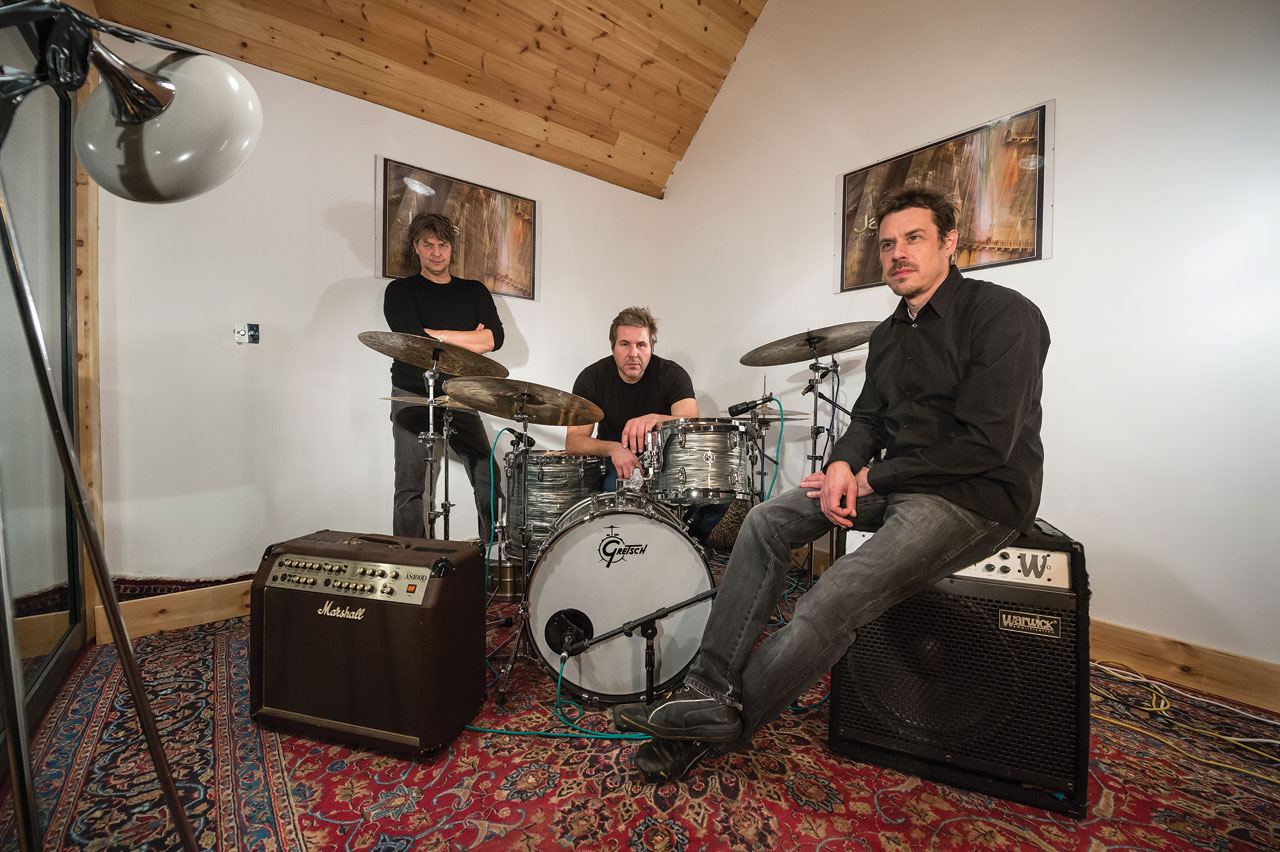
Among numerous highlights, Just Let It Happen offsets a gorgeously mournful, despondent verse with an explosively heavy, riff-pummelling chorus, A Thousand Staring Eyes (featured on the cover-mounted CD for Prog 71) yearns with lush acoustic chords and world-weary despair, before the final title track sets heads spinning with a constantly disorienting time signature that then loops back on itself like a huge möbius band, to return to smoother, 4⁄4 waters.
If there’s an energised quality to it, that might be because this record came together after a healthy period of time Gary Chandler spent completely removed from his first love.
“I took a break for around six months after See Right Through You,” Chandler explains, “because I felt saturated with music – I didn’t pick up a guitar at all. And then thought I’d try to get Medium Rare II together, a collection of stuff that hasn’t been out there before, bits of material that haven’t made it onto the last few albums [and a sequel to 2001’s compilation Medium Rare]. But it was taking so long to get together that I found myself writing other stuff at the same time, and before I knew it, I had a new album. So here it is, and now I’m going to put out Medium Rare II in the spring.”
Sign up below to get the latest from Prog, plus exclusive special offers, direct to your inbox!
Another reason for the long gestation was an obsessive attention to detail that meant Chandler immersed himself in the production of the record to an extent that would challenge the sanity of less driven individuals.
“When I’m in this phase of writing, producing and recording I don’t listen to any other music. I’m locked into my own thing – I’m almost in a hypnotic state. My girlfriend could hear a snare drum from the studio, playing over and over again, and she’d say, ‘Why haven’t you gone mad yet?’ I’d spend thousands of hours going over it and mastering it and trying it through different speakers, in different environments and whatever. But I’ll just keep going ’til I’ve got it. Anyone else, it would probably make them a little bit crazy. But the end result is, I think it sounds like the most cohesive album we’ve made since More Then Meets The Eye.”
He would say that, wouldn’t he? But to these ears, it certainly bears positive comparison to anything Jadis have made since, and including, that 1992 debut album he mentions.
If that hints at a lengthy career to date, it’s the latest step on an even longer journey for a band that Gary Chandler first formed as a teenager, back before Marillion had even signed to EMI and when a few die-hard proggers were keeping the flame burning in resistance to punk and new wave’s new orthodoxy. People like Mike Holmes and Martin Orford, who just happened to knock about in the same haunts as young Gary.
“I would spot Mike and Martin queuing up overnight for tickets for people like Genesis at the Southampton Gaumont [this was in 1980] and they’d be trying to sell tapes for their band The Lens. I’d also see them play at places like the Park Hotel.”
The Lens soon became IQ, and seeing them find an audience for themselves convinced Chandler that Jadis could do the same.
“We did hang onto IQ’s coattails a bit,” he admits. “We were a few years younger, but they were good mates. Mike would even fill in sometimes when our guitarist let us down at the last minute. And then when they said they were moving up to London, after a while we all jacked our jobs in and followed suit.”
A struggle to get signed then followed (“We’d spend ages hawking demo tapes round to all the labels, not realising they were just going to end up in a big bin…”) before a family connection helped secure the break they’d been waiting for.
“Our then keyboard player, Pete Salmon, was related to Steve Rothery, and Steve became a fan, and that opened up the chance to support Marillion on the Clutching At Straws tour. We learnt a lot from him and he helped produce some demos and kept us going.
“We were lucky enough to sell out the Marquee around that time, which gave us a real psychological boost. Only trouble is, one sold-out gig doesn’t save the world…”
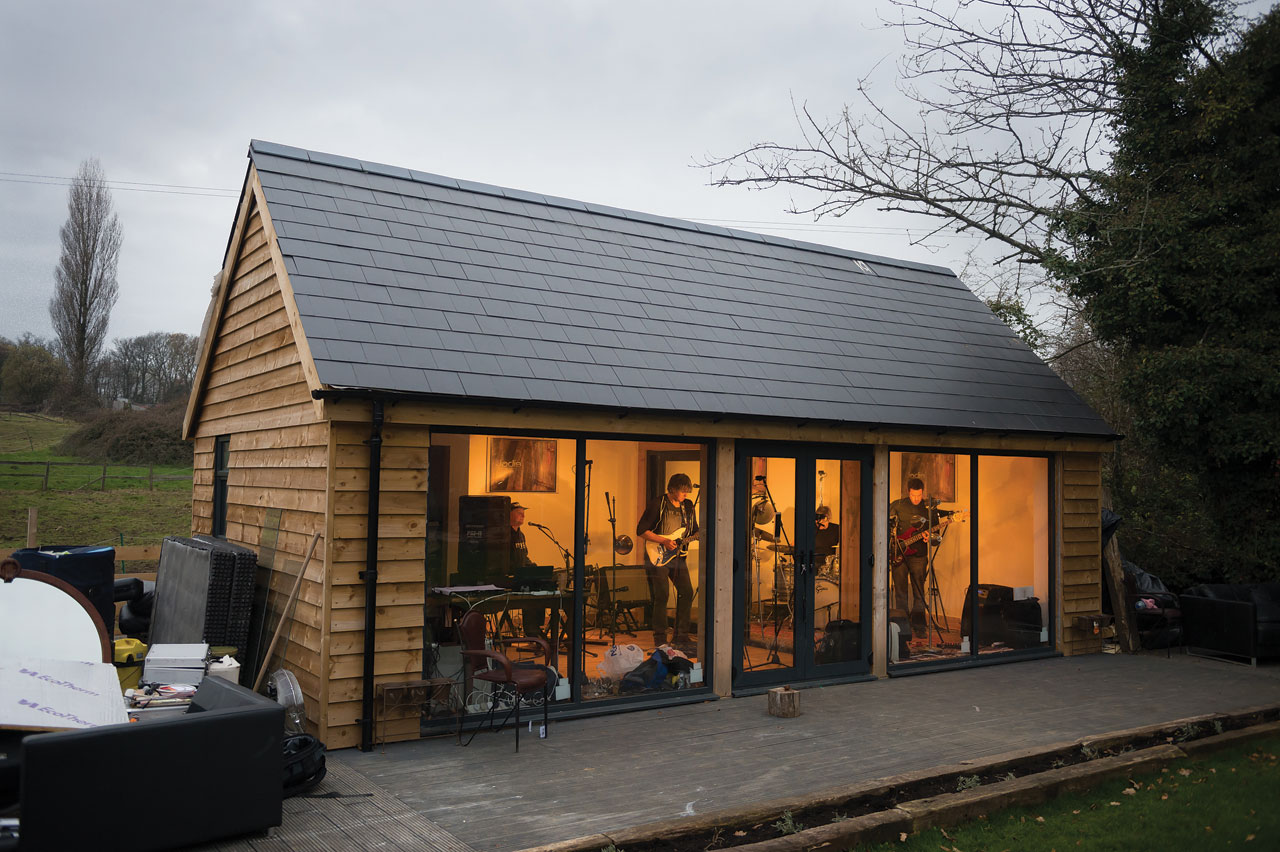
Nonetheless, they managed to self-release their debut album More Than Meets The Eye in 1992, this time with IQ’s Martin Orford and bassist John Jowitt two-timing their other band to officially join Chandler’s outfit.
“Martin in particular really added his skills to it,” he says, “and having several years run-up to that first album, we had a lot of good songs to put on that album.”
During a pretty lean period for the UK prog scene, Jadis proceeded to follow MTMTE with 1994’s Across The Water, and slowly consolidated their following. In the years since, they’ve gone through line-up changes and the inevitable financial and personal challenges, but retained the same melodic, widescreen musical vision that seems to be realised in higher definition than ever on the new album. For that he once again can partly thank Mr Orford; he may have announced a few years back that he’d left not only IQ and Jadis but the music industry altogether, but he still plays a key guest role on this record.
“There were a few tracks I thought he’d really work well on,” Chandler explains. “One track involved a lot of flute and I thought I’d leave it up to Martin to come up with something for that.”
The beautifully pastoral flute that flutters over Change Of The Season is one result of that collaboration, and Orford’s interest in medieval instruments also came to the fore.
“There’s actually a hurdy gurdy on there,” Chandler points out. “The sound dates back hundreds of years but then you put some guitar over it and it sounds really different.”
There’s us thinking it was some kind of bagpipe, but we’re happy to be enlightened. If you want to see this exotic instrument in action live, your best bet might be round at Gary’s house, seeing as there are no plans to tour this record at present. But don’t worry, you won’t have to turn up and ring his doorbell – he often plays gigs there.
“We’ve done a few house gigs in recent years,” he explains, “playing a variety of material – IQ stuff, Jadis, plus a few covers of Pink Floyd, Genesis, Crowded House, anything people like – we did a medley one time and ended up doing a bit of Stonehenge!”
While musically, No Fear Of Looking Down has a coherent feel to it throughout, lyrical themes are a little harder to discern for certain. A Thousand Staring Eyes is the most striking track in that sense, asking, ‘Who lights the fuse that burns the houses to the ground? Who kills a man who only dared to make a sound?’
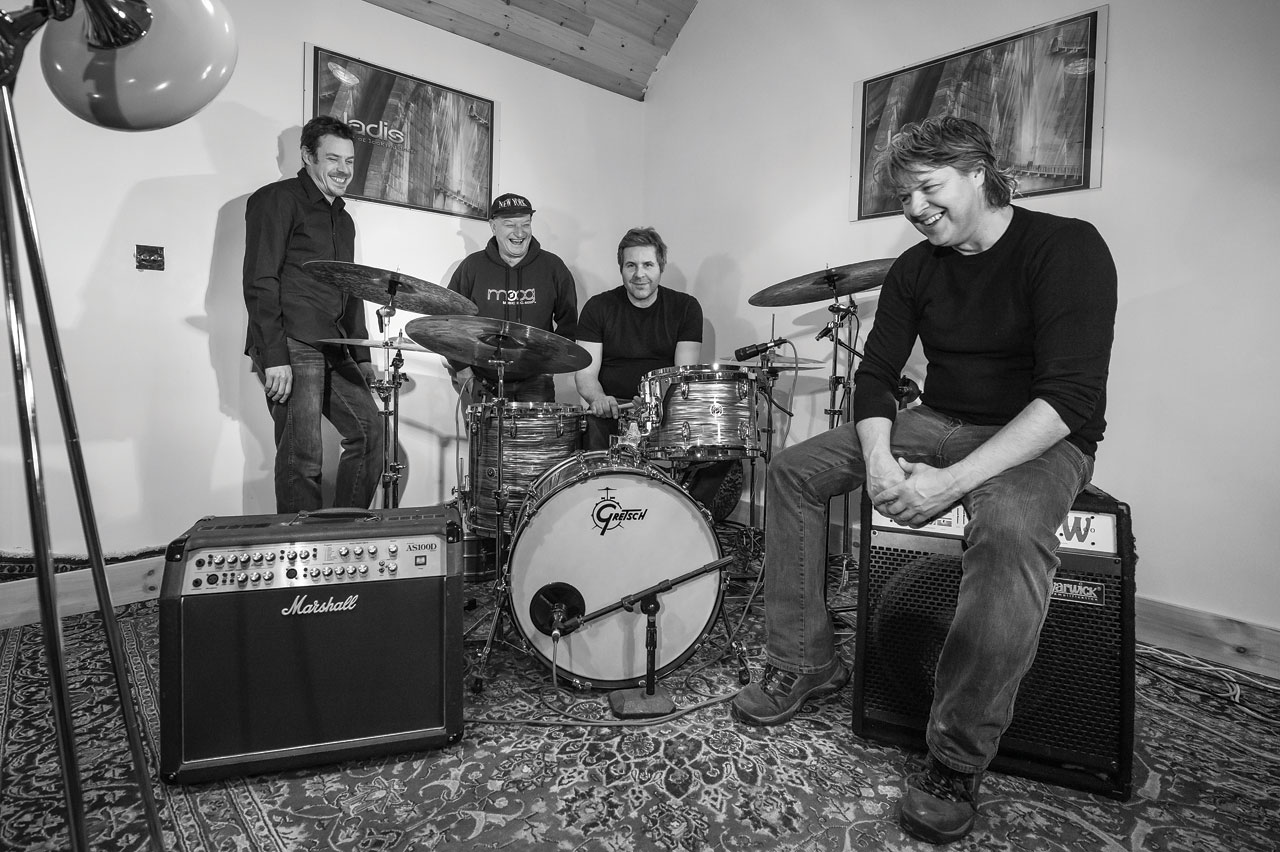
You get a sense of someone looking on at the world’s problems and throwing their hands up in despair. Would that be accurate?
“It’s the idea of the whole world watching events in certain parts of the world,” says Chandler, “and yet you feel all you can do is watch. You’re disgusted by the evil enacted on other human beings, but still feel you can’t do much about it.”
Meanwhile, Seeds Of Doubt has a more tempo accompaniment to lines such as: ‘The seeds of doubt are sown in a land you called your home’ and ‘You did not join the ride, it’s just the frantic place that we live in’.
Again, it stems from a feeling of sympathy and empathy with fellow human beings that are born into less fortunate circumstances. “Sometimes you’re at home and you think, thank God I’m here and feel safe,” says Chandler, “whereas there are people who think and feel similarly to me, but may be in some mud hut or in a war zone and worrying if their family is going to be hunted down in the middle of the night and split up, or someone’s going to be killed.”
Like a lot of artists, he’s got more questions than answers, but it’s thought-provoking in a way that characterises a lot of the best progressive music.
That said, this record is certainly not heavy going philosophically. The traditionalists among you might appreciate the fact that Chandler has gone for a ‘less is more’ approach to editing this not-so-long player.
“I was actually feeling guilty at one point that it’s only 46 minutes long,” he admits. “I imagined all these people making snide comments and saying ‘come on you’ve got a whole CD’s worth you could fill! Give us our money’s worth!’ But that’s not the point. It came together that way and it was the right decision. Eight songs it is. And the best thing is, the people making the vinyl said, ‘you’re just within the time limit to make it without any degradation in sound quality.’”
That abundance of quality over quantity makes No Fear Of Looking Down all the stronger as a listening experience. And even if it still won’t make Jadis household names, or indeed change the world, in their own, modest little corner of the country, they’re doing UK prog proud.
No Fear Of Looking Down is out now on Jadismusic. See www.jadismusic.com for more information.
Johnny is a regular contributor to Prog and Classic Rock magazines, both online and in print. Johnny is a highly experienced and versatile music writer whose tastes range from prog and hard rock to R’n’B, funk, folk and blues. He has written about music professionally for 30 years, surviving the Britpop wars at the NME in the 90s (under the hard-to-shake teenage nickname Johnny Cigarettes) before branching out to newspapers such as The Guardian and The Independent and magazines such as Uncut, Record Collector and, of course, Prog and Classic Rock.

